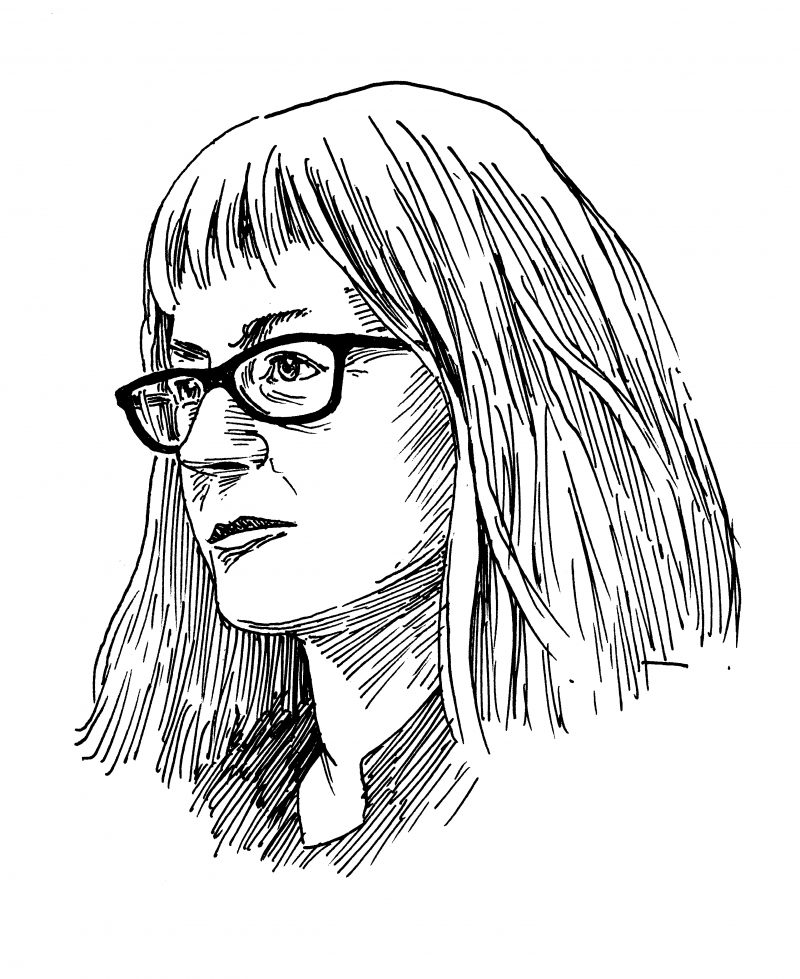“What if is always so cheering,” Helen DeWitt said last fall, over the telephone from Berlin, shortly before the American launch of her latest novel, Lightning Rods. In it, a failed salesman transforms himself into a highly successful peddler of a novel anti–sexual harassment device: a toilet in which a guy can screw an anonymous female coworker from behind, thus decreasing inappropriate, pent-up libidinous energy in the workplace.
The book’s plot proceeds from a series of what if’s—what if such a thing could be accepted into the workplace? What if such a device actually worked? Such what if’s are present not only in DeWitt’s fiction—what if one could choose one’s own father, like Ludo, in her first novel, The Last Samurai, which sold one hundred thousand copies in English alone?—but also, sometimes maddeningly, in her career: what if your second book, Your Name Here, was being published four years after the PDF version, available on your website, was reviewed in the London Review of Books?
DeWitt is one of the funniest writers going (in a Nathanael West/Mel Brooks way), and devoted readers of her books and her blog, Paperpools, admire her ferocious, wide-ranging intelligence, and her faith in readers’ intelligence. She never panders or talks down.
Although Helen and I have emailed sporadically for years now, we corresponded more intensely during the course of this interview. For several weeks we emailed, skyped, and gchatted regularly. She was charming, funny, and outspoken, and always quick with a new example of why publishing is an almost unimaginably bad industry, an impossible context for a writer to thrive in.
—Weston Cutter
I. HE HAD BEEN ON MY SIDE, IN IGNORANCE OF MY EXISTENCE
THE BELIEVER: I’m interested in how your books come about, emotionally. How do you end up writing what you write? The Last Samurai seemed to come from this what if of a boy navigating issues of paternity, and you said you had a clear structure in mind for it. Lightning Rods was one of the ten books you began writing post-Samurai—books that did “just one thing.”
HELEN DeWITT: Around the time of Samurai, I had a very bad argument with my father. So I thought, We don’t pick our parents. If we picked, I would have picked something better than this. And then I had an idea for a book, or, anyway, a question: what would be necessary for it to be possible to pick? I think interesting books explore new paradigms. First you think of the paradigm—it might be: how does a...
You have reached your article limit
Sign up for a digital subscription and continue reading all new issues, plus our entire archives, for just $1.50/month.
Already a subscriber? Sign in





